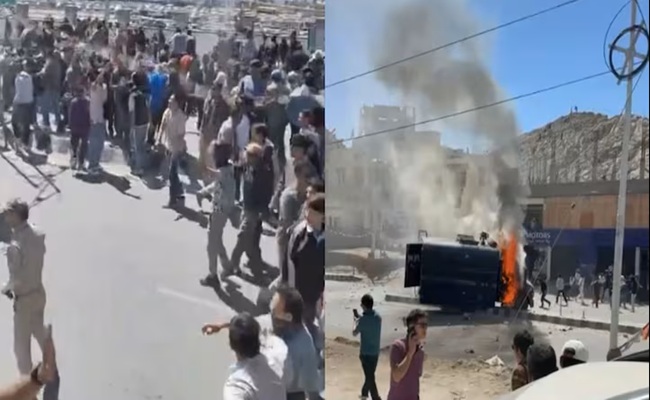
Gen-Z protests happened in Nepal and Peru recently, and now the wave has hit Ladakh too, but this time for a very different reason, a constitutional one.
The unrest in Leh, the capital of Ladakh, turned violent on September 24 after young demonstrators, mobilised under the Leh Apex Body (LAB), demanded long-promised political and constitutional safeguards for the region.
The protests, which left four people dead and several injured, erupted after LAB leaders refused to end their hunger strike until their demands were addressed.
The agitation reflects Ladakhis’ frustration with the Centre since the region was carved out of Jammu and Kashmir in 2019. Protesters accuse the government of delaying talks and ignoring local aspirations.
Even as the Ministry of Home Affairs set October 6 for dialogue, LAB leaders objected to what they saw as unilateral decisions.
Violence escalated, including attacks on the BJP’s Leh office, though activists like Sonam Wangchuk urged peace and ended their hunger strikes in dismay.
At the heart of the protests are four core demands like statehood for Ladakh, inclusion under the Sixth Schedule to protect tribal rights, a separate Public Service Commission to address high unemployment and two Lok Sabha seats to ensure fair representation.
While the Centre has shown some willingness to discuss jobs and representation, it has flatly rejected statehood and Sixth Schedule inclusion, the very issues driving Ladakh’s youth-led constitutional agitation.














